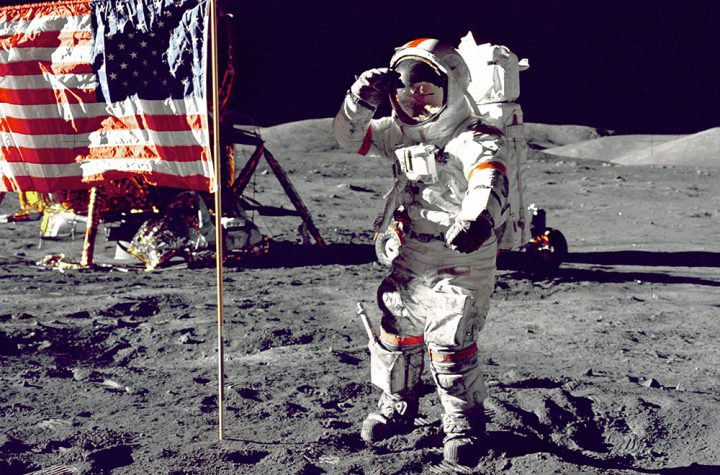
Liberal advocates are furiously trying to elevate the federal judiciary as a key voting issue in 2020 and remind voters of the effects President Trump’s nominees are having not only on the Supreme Court but at the appellate and district levels as well.
They’re trying to avoid a repeat of 2016, when Supreme Court nominee Merrick B. Garland didn’t even get a mention from top party leaders in hours of prime-time speeches during the Democratic National Convention and the judiciary issue was seen as a defining factor in holding together a conservative movement that at the time had doubts about Mr. Trump.
“Progressives are galvanized on the issue of the courts like never before,” said Daniel Goldberg with Alliance for Justice Action Campaign, while noting that it has been “incredibly disappointing” that the issue hasn’t gotten more attention in Democratic debates.
He said his group plans to spend the next 11 months educating the public about “the assault on our Constitution and laws by the people that have been rubber-stamped by the Republican Senate and how critical it is for the next Democratic president to prioritize this issue.”
The president, with the help of the GOP-controlled Senate, has filled two Supreme Court vacancies. During Mr. Trump’s three years in the White House, the Senate also has confirmed 50 circuit court judges and more than 130 district court judges.
To the delight of conservatives, and the consternation of liberals, about 1 out of every 4 circuit court judges is a Trump nominee.
The issue warrants more attention than it’s getting, said Marge Baker, executive vice president at the group People for the American Way.
“I think it’s really energized voters, energized activists,” she said.
Ms. Baker said the issue might have gotten lost in the shuffle in 2016 amid a cavalier attitude among progressives about the outcome of the election.
“It wasn’t as prominent as it could have been, as it should have been,” she said. “I think the issue could have, in 2016, gotten people out in a big way because the rights were very much at risk then and now we’ve seen what happened.”
Though some of the major speakers at the 2016 Democratic National Convention did talk about the importance of the Supreme Court, Judge Garland himself didn’t get a mention during hours of prime-time speeches even though his nomination battle had been a major flash point at the time.
Ms. Baker’s group helped host a forum in Iowa over the weekend in which several top presidential candidates did face questions about their approach to the federal judiciary.
Former South Bend, Indiana, Mayor Pete Buttigieg mentioned Judge Garland, chief judge for the U.S. Court of Appeals for the D.C. Circuit, in arguing that Republicans have adopted a take-no-prisoners approach to the courts.
“Part of why I think a lot of Republicans have stayed on board with a president who is as offensive to their party’s values as they are to my party’s values is that they feel they’re getting their way in one very specific, narrow, and important field, which is appointments to the bench,” Mr. Buttigieg said.
President Obama nominated Judge Garland in March 2016 to fill the vacancy left by the late Justice Antonin Scalia.
But Senate Majority Leader Mitch McConnell didn’t hold any hearings or votes for Judge Garland, citing the politics of an election-year appointment to the high court and saying the American people should get to weigh in on the vacancy via the 2016 presidential election.
Mr. Trump ultimately nominated Justice Neil M. Gorsuch, who was confirmed in April 2017 after the GOP changed the filibuster rules to fast-track Supreme Court nominees.
As one potential reform, Mr. Buttigieg has proposed expanding the Supreme Court to 15 justices, with five aligned with Democrats, five aligned with Republicans, and the last five to be chosen by the other 10 justices.
Sen. Amy Klobuchar of Minnesota, meanwhile, found herself on the defensive after being asked why she has voted to confirm roughly one-third of Mr. Trump’s judicial nominees.
Ms. Klobuchar pointed out that she stood her ground when Supreme Court Justice Brett M. Kavanaugh tried to turn her questioning around at a 2018 confirmation hearing to ask if she had ever had so much to drink that she blacked out. He later apologized.
She vowed to move quickly on filling vacancies.
“These guys have been stacking the court,” she said. “There’s going to be a lot of openings when a new president comes in and it is time to fill them with judges who respect the law.”
Under the leadership of then-Senate Majority Leader Harry Reid, Democrats in 2013 moved to eviscerate the filibuster for judicial nominees, helping streamline the process both for Mr. Obama — and Mr. Trump.
Ms. Klobuchar said it was worth trying to preserve the “blue slip” process in which home-state senators can get informal veto power over judicial appointments, while pointing out that the practice has effectively ended for circuit court nominees.
“Right now, that blue slip process for district court nominees is really the only thing that is saving us from even more conservative nominees,” she said. “Just like the filibuster to me, some of it’s leverage. If they’re messing around too much, you have the leverage of changing something.”
The White House has touted Mr. Trump’s judicial confirmations as one of his major achievements, and the issue helped hold together what had been a loose alliance between Mr. Trump and the conservative movement during the 2016 campaign.
In May 2016, Mr. Trump released a list of about a dozen potential nominees for the Supreme Court if he were elected, later supplementing the list with names that included Justice Gorsuch.
His release of a specific list helped ease some fears among many conservatives, notably evangelical Christians, who didn’t quite know what to make of Mr. Trump’s commitment to their cause, given his past statements favorable to gun control and abortion rights.
Historically, the courts issue has favored the GOP, and Republicans are more likely to cite the courts as a top priority when it comes to making up their minds on political candidates, said Richard Pacelle Jr., a political science professor at the University of Tennessee-Knoxville.
“For Democratic voters, it falls much lower,” he said.
But Mr. Pacelle said Democrats should be much more attuned to it now, particularly after the contentious battle over Justice Kavanaugh’s confirmation in 2018.
“I would be shocked if the Democrats fumbled this again, but I’ve been shocked before,” he said. “I never underestimate the ability of the Democrats to shoot themselves in the foot.”
Sign up for Daily Newsletters
Copyright © 2020 The Washington Times, LLC.
Click
here for reprint permission.





More Stories
The BMC has banned fire crackers in all public and private places within the city limits.
Apple has cut off major supplier Pegatron from new contracts following the reveal of student labor violations. Pegatron is one of Apple’s biggest supply chain partners, manufacturing various products including some of the newest iPhone 12 models.